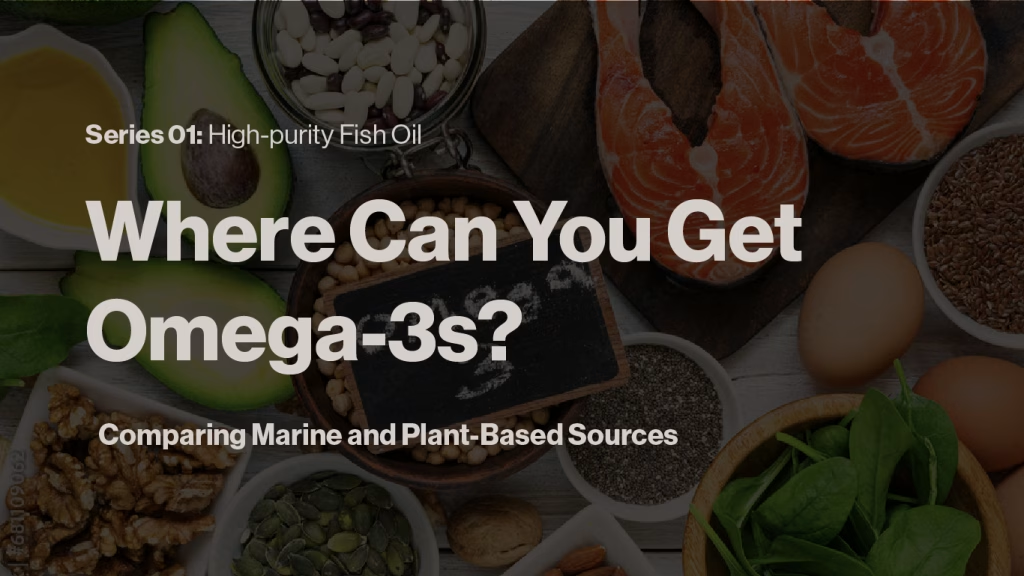
Where Can You Get Omega-3s? Comparing Marine and Plant-Based Sources, what is the best omega3 supplement
When it comes to omega3 fatty acids, not all sources are created equal. While both marine and plant-based foods can provide omega-3s, the type and bioavailability of these essential fats vary greatly. So, which source is best for you? What is the best omega3 fish oil? And how does an omega3 supplement compare? Let’s dive into the differences.
Understanding the Types of Omega-3s
Omega-3 fatty acids come in different forms, each with unique properties. Marine sources provide EPA, DHA, and DPA, which are the most effective types for human health. They are found in fatty fish such as salmon, mackerel, sardines, and anchovies, as well as fish oil, krill oil, and algae oil. On the other hand, plant-based sources, like flaxseeds, chia seeds, walnuts, and hemp seeds, only offer ALA. ALA must be converted into EPA and DHA by the body, but this conversion process is highly inefficient. To ensure optimal intake of these essential fats, many people turn to an omega3 supplement, which provides a concentrated and highly bioavailable source of EPA and DHA.
Why Marine Omega-3s supplement Stand Out
Marine omega-3s are preformed, meaning they are ready for your body to use immediately. This is especially important because the conversion rate of ALA from plant-based sources into EPA and DHA is less than 5%. Relying solely on plant-based omega-3s can make it difficult to meet your daily needs. Anchovies, in particular, are an excellent source of marine omega-3s. These small fish are rich in EPA and DHA, sustainably harvested, and have lower levels of mercury compared to larger species like tuna.
Comparing Health Benefits
Marine omega3 supplements provide extensive benefits. They reduce triglycerides, lower blood pressure, and improve cardiovascular health. They support brain function, reducing the risk of cognitive decline and improving mood. Their anti-inflammatory properties make them effective in managing conditions like arthritis and inflammatory bowel disease. In contrast, plant-based omega-3s are better suited for general health maintenance but lack the potency and specific benefits of EPA and DHA.
Environmental and Ethical Considerations
Marine omega-3 sources, particularly anchovies and sardines, are among the most sustainable options due to their abundance and rapid reproduction rates. Fish oil derived from these species has a minimal environmental impact compared to larger species like tuna. For vegetarians and vegans, algae oil offers a marine alternative with DHA and EPA without involving fish. Plant-based omega-3s are widely available and environmentally friendly, but their lower bioavailability limits their effectiveness compared to marine sources.
Marine omega-3s are the superior choice for achieving sufficient levels of EPA, DHA, and DPA. While plant-based sources provide ALA, their limited conversion to usable omega-3s makes them less effective as standalone options. For optimal health benefits, integrating marine omega-3s into your diet or taking an omega3 supplement ensures a reliable and highly bioavailable source of these essential fatty acids.
But when it comes to marine omega-3s, which source stands out? Should you choose fish oil, krill oil, or seal oil? In our next article, “Which Marine Omega-3s Are the Best: Fish Oil, Krill Oil, or Seal Oil?“, we’ll compare these popular options in terms of bioavailability, sustainability, and unique benefits to help you make an informed choice. Stay tuned!

